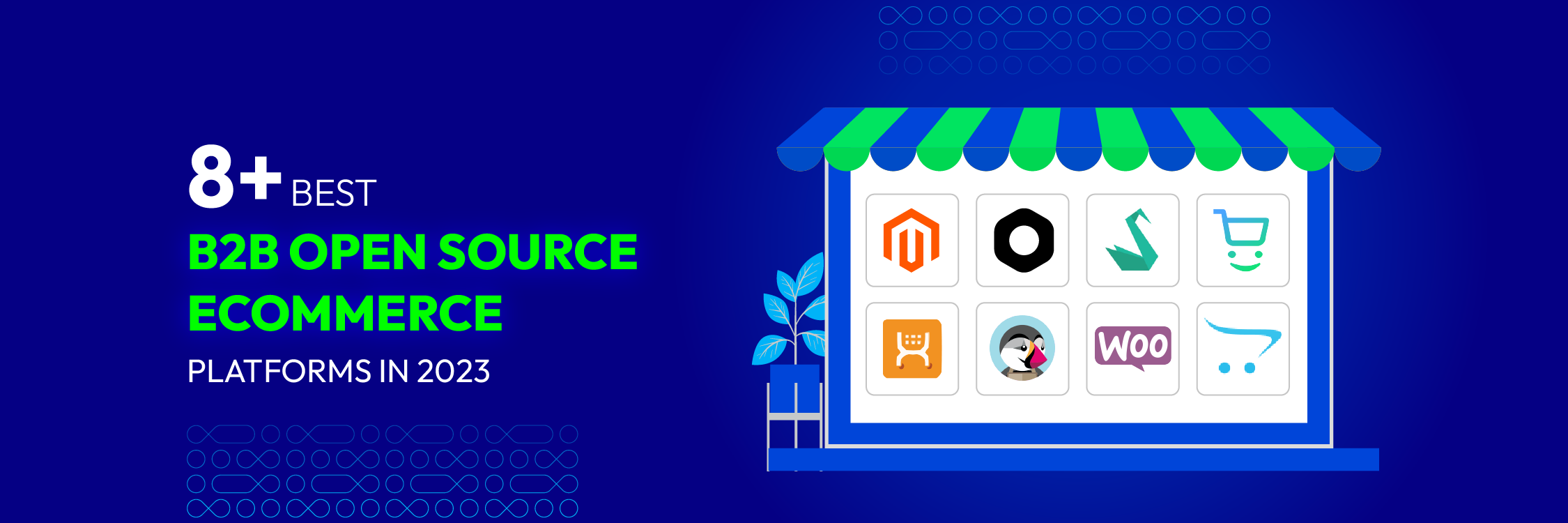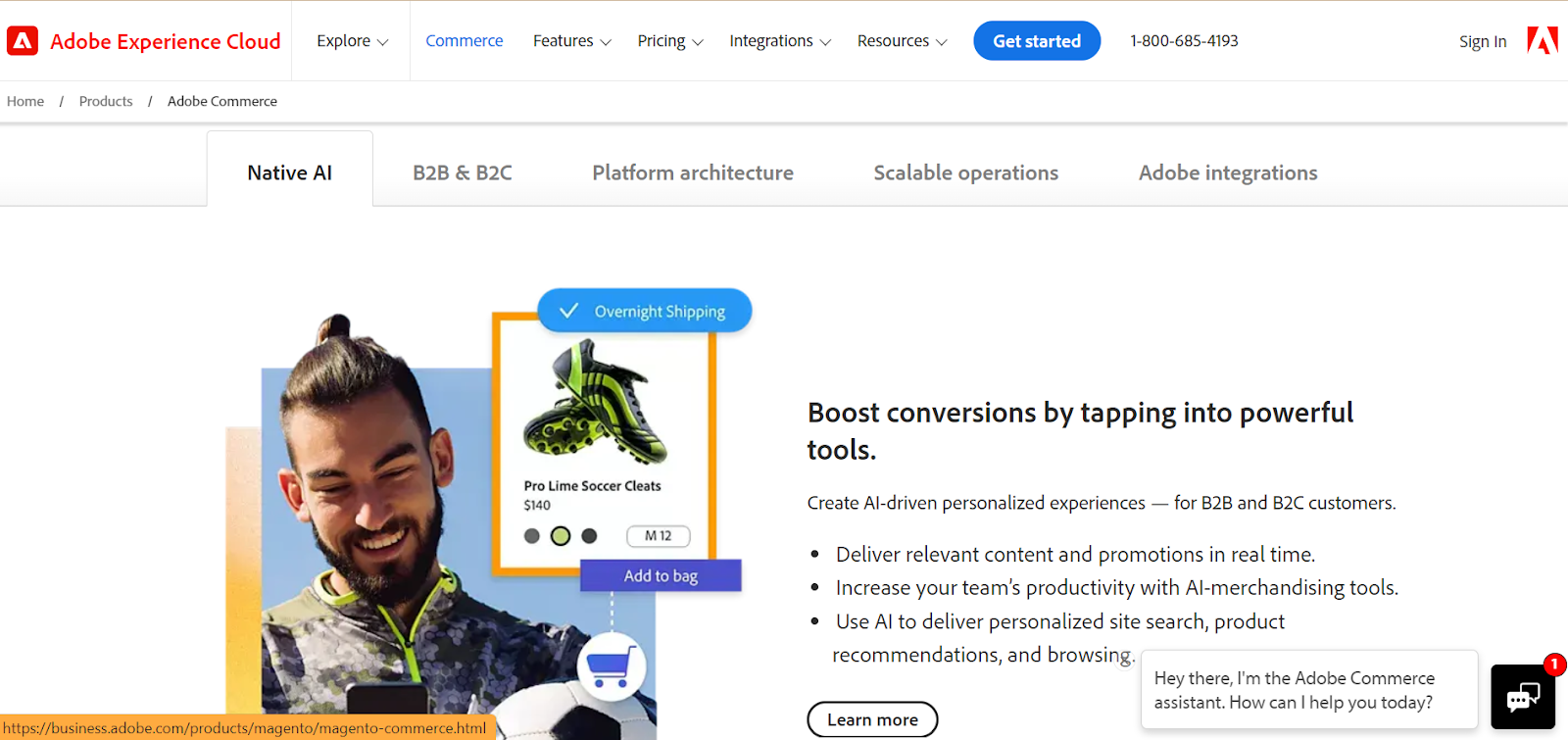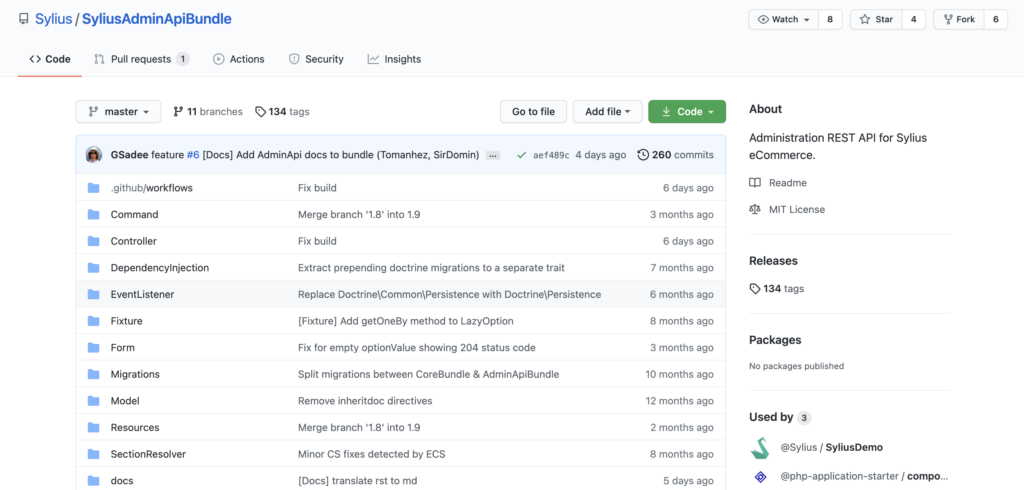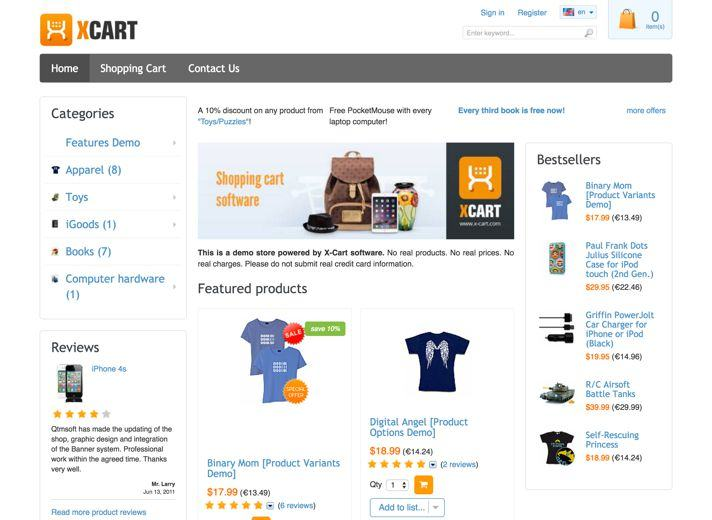Hyvä Theme is Now Open Source: What This Means for Magento Community - Mageplaza
Hyvä is now Open Source and free. Discover what changed, what remains commercial, how it impacts the Magento ecosystem, and how to maximize its full potential.

As we step into 2023, the demand for open source B2B eCommerce platforms has never been higher, with businesses of all sizes increasingly turning to these cost-effective solutions to drive innovation and streamline their online sales processes. Open source B2B eCommerce platforms have emerged as a compelling choice, offering flexibility, scalability, and the freedom to tailor the platform to precise B2B needs.
In this guide, we delve into the realm of B2B eCommerce and explore the top contenders in the open-source ecosystem. We will highlight the 8+ best B2B open source eCommerce platforms that are poised to make a significant impact on the industry in 2023.
An open source B2B eCommerce platform is software with freely accessible and editable source code. This means that anyone can view, modify, or enhance the software according to their preferences and specific needs. In the context of eCommerce, an open source commerce platform is designed to support online businesses in creating and managing their digital storefronts, facilitating the sale of products or services.

Cost-Effective: Open source platforms are typically free to use, which significantly reduces upfront software costs. This allows businesses to allocate their budgets to other crucial aspects of their eCommerce operations.
Customization: Open source B2B eCommerce platforms are highly customizable. Businesses have the freedom to modify and extend the software to meet their specific requirements. This includes customizing the user interface, adding or removing features, and integrating with third-party tools and services.
Flexibility: Open source B2B eCommerce solutions are designed to be adaptable. They can evolve with changing market conditions, customer needs, and industry trends. Businesses have the flexibility to pivot and adjust their online store as necessary.
Community Support: Open source B2B eCommerce platforms benefit from active user communities and developer networks. This provides a valuable support system for businesses. Users can seek assistance, share best practices, and collaborate on problem-solving within the community.
Scalability: Many open source B2B eCommerce platforms are built to scale with the business. They can cater to the needs of small startups and grow alongside large enterprises. This scalability ensures that the platform can handle expanding product catalogs and increasing sales volumes.
Security: Open source platforms have the advantage of transparency. The community can scrutinize the source code for vulnerabilities and contribute to security improvements. Over time, this collaborative effort can lead to more secure software.
Interoperability: Open source solutions often provide the flexibility to integrate with various tools and systems. This ensures a seamless flow of data and processes between different aspects of eCommerce operations, such as accounting, customer relationship management, and order processing.
User access control: Robust user access control and permission settings are essential. B2B platforms should allow businesses to manage access levels for different employees and stakeholders, ensuring data security and privacy.
Custom Pricing and Quoting: B2B eCommerce often involves negotiation of pricing based on factors like order volume and contract terms. The ability to set and manage custom pricing for individual clients is crucial. Additionally, the platform should support the generation and management of quotes for potential orders.
Product Catalog Management: Comprehensive product catalog management is necessary, including features for bulk product uploads, support for multiple product categories, and the ability to provide detailed product descriptions. The platform should also allow for variations and SKU management.
Order Management: Efficient order processing capabilities are essential. This includes features for managing complex orders, tracking order status, handling returns, and integrating with existing order processing systems.
Inventory Management: B2B platforms should offer robust inventory management, real-time inventory updates, and support for multiple warehouses or locations.
Integration Capabilities: Seamless integration with other business systems, such as ERP (Enterprise Resource Planning) and CRM (Customer Relationship Management), is vital for streamlining operations and data synchronization.
Multiple Payment Options: B2B buyers may require various payment options, including credit terms, invoicing, and online payment gateways. The platform should be flexible in accommodating these payment methods.

Customer-Specific Catalogs: Many businesses have unique product offerings or pricing structures for different customers or customer groups. The platform should allow for the creation of customer-specific catalogs to cater to these specific requirements.
Bulk Ordering: B2B buyers often need to place large orders efficiently. The platform should include features like quick order forms to streamline this process.
Customer Self-Service Tools: Self-service capabilities, such as account management, order history access, shipment tracking, and invoice retrieval, are essential for B2B customers. These features reduce the workload on customer support teams and enhance the overall customer experience.
Read more: Magento Open Source vs Adobe Commerce - Make the Right Business Choice
Feature Rich: Magento is known for its extensive set of out-of-the-box features. It offers robust tools for inventory management, order processing, customer management, and a wide array of payment options.
Customization: Businesses can tailor their online stores extensively, thanks to Magento’s flexibility and support for third-party extensions and integrations. Customized pricing structures, customer-specific catalogs, and unique B2B features can be easily implemented.
Scalability: Magento is designed to develop with your business. It can handle expanding product catalogs, an increasing number of customers, and higher sales volumes.
Globalization: For businesses operating internationally, Magento supports multiple languages, currencies, and tax regulations, making it a suitable choice for global B2B operations.
Community Support: Magento has an active community of users and developers, providing support, sharing best practices, and contributing to the platform’s ongoing development.
Technical Resources: While Magento is powerful, it will request a higher level of technical expertise to set up. Businesses should ensure they have the necessary resources or consider working with Magento experts.
Cost: While Magento is open source, businesses should budget for expenses related to hosting, development, and potentially third-party extensions, which may incur costs.
Resource Intensive: Due to its feature richness, Magento can be resource-intensive in terms of hosting requirements. High-quality hosting is often necessary for optimal performance.
Small to Large Business
Online Retailers
B2B and B2C Business
Customization
Multi-Store Operations
High Customization: Medusa is designed for businesses that need a high degree of customization. It allows you to tailor your eCommerce platform to meet your specific B2B requirements.
Headless Architecture: Medusa follows a headless architecture, which means it decouples the frontend and backend, providing businesses with the flexibility to use various frontend technologies and create unique user experiences.
Community-Driven Development: Medusa benefits from an active open-source community that continuously contributes to its development. This ensures that the platform remains up-to-date, secure, and adaptable to changing needs.
JavaScript/TypeScript: Medusa utilizes JavaScript and TypeScript, making it an attractive option for businesses and developers with expertise in these languages.

Technical Expertise: Medusa may require a higher level of technical expertise to take full advantage of its customizability. Businesses should assess whether they have the necessary development resources.
Feature Set: While Medusa is highly customizable, it may not offer an extensive out-of-the-box feature set. Businesses should consider whether the core features align with their B2B eCommerce needs or if additional development is required.
Small to Medium-sized Businesses
Developers and Tech-Savvy Users
Customization Needs
Budget Constraints
Entrepreneurs and Startups
Modularity: Sylius is built with modularity in mind, allowing businesses to adapt and extend their eCommerce solution to meet specific B2B requirements. It uses Symfony components, a popular PHP framework, which further enhances its customizability.
Customization: Sylius supports custom pricing structures, customer-specific catalogs, and diverse B2B features. Businesses can tailor their online stores to suit their unique needs.
Scalability: Sylius can grow with your business, making it a relevant choice for businesses to anticipate expanding product catalogs, customer bases, and sales volumes.
Multi-Channel Sales: Sylius supports multi-channel sales, enabling businesses to sell across various online channels and marketplaces, which is valuable for B2B operations.
Globalization: For businesses with international operations, Sylius offers support for multiple languages, currencies, and tax regulations.
Community and Support: Sylius has an active community and offers commercial support, providing resources, documentation, and assistance to users.

Technical Expertise: Sylius may require a certain level of technical expertise, particularly in PHP and Symfony, to fully leverage its customizability. Businesses should assess whether they have the necessary development resources or consider working with Sylius experts.
Cost: Although Sylius is open source, businesses need to allocate funds for hosting, development, and possible third-party extensions or integrations
Resource Intensive: For optimal performance, high-quality hosting may be necessary, as Sylius can be resource-intensive.
Developers and Tech-Savvy Users
Small to Medium-sized Businesses
Multi-Channel and Multi-Store Operations
Community and Support
Data Control and Ownership
Modularity: Spree modular architecture makes it a powerful choice for businesses looking to customize their eCommerce platform. It follows the Ruby on Rails philosophy of “convention over configuration”, providing a strong foundation for flexibility.
Customization: Spree supports custom pricing structures, customer-specific catalogs, and various B2B features. Businesses can adapt and tailor their online stores to match their specific requirements.
Extension Ecosystem: Spree has an active extension ecosystem, with a variety of extensions and plugins available to enhance the platform’s functionality. This makes it easier to add features or integrations that your B2B business may need.
Scalability: Spree can grow with your business, making it a suitable choice for businesses anticipating increased product catalogs, customer bases, and sales volumes.
Globalization: Spree supports multiple languages, currencies, and tax regulations, making it suitable for businesses with international operations.
Community Support: Spree has an active community and a strong developer network, providing resources, documentation, and assistance to users.

Complexity for Smaller Businesses: Smaller businesses with limited technical resources may find Spree to be overly complex for their needs. The platform’s modularity and customization capabilities might be more than what smaller operations require.
Costs: While Spree is open source, businesses should budget for expenses related to hosting, development, and potential third-party extensions or integrations. Customization and development costs can add up, making it essential for businesses to manage their budgets effectively.
Resource Intensive: Spree can be resource-intensive, especially if not hosted on high-quality servers. Smaller businesses or those with budget constraints may find hosting costs to be a challenge.
Small to Large Businesses
B2B and B2C Businesses
Customization Requirements
Multi-Store Operations
International Businesses
User-Friendly: Prestashop is known for its user-friendly interface and easy-to-navigate back-end. This can reduce the learning curve for businesses new to eCommerce.
Feature-Rich: PrestaShop comes with an extensive set of out-of-the-box features, including inventory management, order processing, customer management, multiple payment options, and more.
Customization: While PrestaShop is feature-rich, it also supports customization through themes, modules, and integrations. Businesses can tailor their online stores to suit their unique B2B requirements.
Scalability: PrestaShop is designed to accommodate the growth of businesses. It can handle expanding product catalogs, customer bases, and sales volumes.
Globalization: For businesses operating internationally, PrestaShop provides support for multiple languages, currencies, and tax regulations, making it suitable for global B2B operations.
Community Support: PrestaShop has a large user community and active developer networks, providing resources, documentation, and assistance to users.

Complex Customization: While PrestaShop is customizable, complex customizations and unique functionalities may require significant development work. Businesses with highly specialized needs may find it challenging to implement intricate customizations.
Performance on Lower-End Hosting: PrestaShop can be resource-intensive, and performance issues may arise if hosted on lower-end hosting solutions. High-quality hosting is recommended for optimal performance.
Limited Multi-Store Features: PrestaShop’s multi-store feature may not be as advanced as some other eCommerce platforms, potentially limiting its effectiveness for businesses with complex multi-store setups.
Small to Medium-sized Businesses
Startup Entrepreneurs
Non-Technical Users
Budget-Conscious Businesses
Standard Ecommerce Needs
User-Friendly: WooCommerce is renowned for its user-friendly interface. It seamlessly integrates with WordPress, one of the most popular content management systems, making it easy for individuals, bloggers, and small businesses to add ecommerce functionality to their existing websites.
Customization: With a plethora of themes and plugins, WooCommerce permits you to customize your online shop to align with your brand identity and specific needs. This ensures your store looks and functions exactly the way you envision.
Rich Product Management: It offers robust product management capabilities, including support for digital and physical products, variable products, and even subscriptions. Managing inventory, pricing, and product attributes is a breeze.
Payment and Shipping Options: WooCommerce provides a wide range of payment gateways and shipping options. Whether you prefer PayPal, credit card payments, or international shipping, WooCommerce offers a variety of choices to accommodate your needs.
Analytics and Reporting: Access to detailed sales reports and analytics helps you make informed decisions and fine-tune your marketing strategies.
Community Support: Being open-source, WooCommerce enjoys a large and active user community. This means extensive resources, documentation, and a vast selection of third-party plugins are available to enhance your store.

Hosting: You’ll need your own hosting for WooCommerce, which may involve additional costs and technical setup. However, it provides more control over your hosting environment.
Maintenance: Regular updates are crucial to ensure your store’s security and functionality. This may require a level of technical expertise or hiring a developer.
Extensions: While many basic features are free, more advanced functionality might require purchasing premium extensions.
Small Businesses
Bloggers and Content Creators
Entrepreneurs
Developers
User-Friendly Interface: OpenCart is known for its straightforward and intuitive user interface, making it accessible to users with varying levels of technical expertise.
Customization: The platform offers a wide range of themes and extensions, allowing users to customize their online stores to match their brand identity and meet specific requirements.
Product Management: It provides robust product management features, including support for both physical and digital products, product options, and variants. Inventory management, pricing, and product attributes can be easily controlled.
Payment and Shipping Options: OpenCart offers a variety of payment gateways and shipping options, enabling businesses to cater to diverse customer preferences and shipping needs.
Multi-Language and Multi-Currency Support: This feature is particularly beneficial for businesses with a global customer base, as it allows you to offer your store in multiple languages and accept payments in various currencies.

Hosting: Like WooCommerce, OpenCart requires users to provide their own hosting. This means you’ll need to choose a hosting provider and handle server management.
Updates and Maintenance: Regular updates and maintenance are essential to ensure the security and smooth functioning of your online store. Some technical expertise or professional assistance may be necessary.
Community and Support: While OpenCart has an active user community, the level of support can vary, and you might need to rely on forums and documentation for assistance.
Small to Medium-Sized Businesses
Entrepreneurs and Startups
Global Businesses
Developers and Designers
Highly Customizable: X-Cart is known for its exceptional level of customization. Users can tailor their online stores to meet specific design and functionality requirements, making it an excellent choice for businesses with unique needs.
Multi-Vendor Support: X-Cart provides the option to create multi-vendor marketplaces, allowing multiple sellers to list and sell products within a single platform.
Responsive Design: The platform offers responsive design themes to ensure that your online store looks well on a wide range of devices, including mobile phones and tablets.
Payment and Shipping Options: It supports numerous payment gateways and shipping providers, ensuring flexibility and convenience for both customers and business owners.
SEO-Friendly: X-Cart includes built-in SEO features to enhance the visibility of your online store in search engine results, potentially increasing organic traffic.

Complexity: The high level of customization and feature-rich nature of X-Cart can lead to a steeper learning curve, especially for newcomers to your website to ecommerce platforms.
Cost: While X-Cart offers a free version called “X-Cart Free,” more advanced features and capabilities often require purchasing paid licenses and additional add-ons, which can add to the overall cost.
Maintenance and Updates: Ongoing maintenance and updates are crucial to ensure the security and optimal performance of your online store.
Medium to Large Businesses
Multi-Vendor Marketplaces
Tech-Savvy Entrepreneurs
Ecommerce Agencies and Developers
| Platform | Highlight | Consider | Who should use it |
|---|---|---|---|
| Magento | - Powerful - Scalable |
- Higher costs - Resource-intensive |
- Enterprise-level businesses |
| Mesuda | - User-friendly - Affordable |
- Limited features - Smaller community |
- Small to medium-sized businesses |
| Sylius | - Highly customizable - Open source |
- Development expertise required | - Developers businesses - Tech-savvy businesses |
| Spree | - Flexibility - Modular architecture |
- Require significant development effort | - Mid-sized to large businesses |
| PrestaShop | - Easy to set up - User-friendly |
- Limited built-in features | - Small to medium-sized businesses |
| WooCommerce | - Seamless integration with WordPress | - Less suitable for complex eCommerce needs | - WordPress users and - Small shops |
| OpenCart | - Lightweight - Easy to install |
- Fewer built-in features and extensions | - Small to medium-sized businesses |
| X-Cart | - Scalable - Feature-rich |
- Costly for small businesses | - Medium to large businesses |
In conclusion, the year 2023 presents an exciting landscape for B2B eCommerce with the availability of a diverse range of open source B2B eCommerce platforms to the unique needs of businesses. These platforms offer a plethora of features, customization options, and scalability to empower B2B enterprises in their online endeavors.
Businesses can choose from these platforms based on their specific needs, technical capabilities, and long-term goals. As B2B eCommerce continues to grow and evolve, these open-source solutions stand ready to support businesses in their quest for success and expansion in the digital marketplace. The year 2023 promises to be a year of innovation and opportunity for B2B eCommerce, and these platforms are at the forefront, enabling businesses to thrive in a competitive online world.